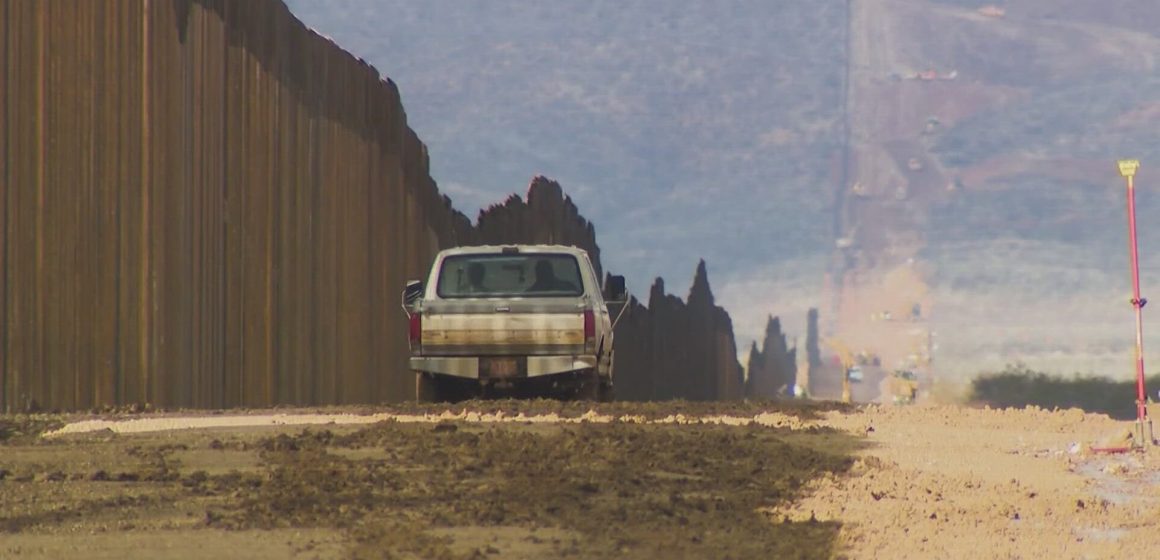The A Block: New Year celebrations, new Arizona laws and Peach Bowl preview
PHOENIX — New Year, new laws. Here’s some of the new legislation going into effect in Arizona, starting January 1, 2025.
Prop 314
Prop 314, also known as the Secure the Border Act, makes it a state crime to enter Arizona illegally. The proposition, passed by Arizona voters in November, gives local law enforcement new authority to arrest people who cross the border illegally, rather than federal law enforcement.
Not all sheriffs in Arizona said they’d enforce this, but some law enforcement agencies are still trying to gear up.
The Arizona Sheriff’s Association, led by Yavapai County Sheriff David Rhodes, is asking state lawmakers for $50 million next year to help with staff increases and enforcement.
The law is similar to one that was passed in Texas – which is currently being challenged in court.
It’s expected there might be similar challenges in Arizona that could keep the law in limbo…
Prop 312
If a property owner incurs damages as a result of a city or county not enforcing certain zoning ordinances, they may be able to apply for a refund under Prop 312.
Experts say people can submit a claim once a year. The refund can’t exceed the amount someone paid in property taxes the year prior.
People can apply for up to 10 years and there needs to be not only proof of expenses but proof the expenses are related to municipalities failing to enforce these kinds of ordinances or addressing a public nuisance.
Cities and counties will have the opportunity to contest the claim. Potential payouts are expected to come from shared state revenue.
The measure received support statewide, but there are others that are opposed to the measure, like activist groups and the ACLU of Arizona. Some of the arguments detailed ahead of the election expressed concerns that Prop 312 would make the housing crisis in Arizona worse and would negatively impact those experiencing homelessness.
Minimum wage bump
Arizona’s minimum wage is projected to increase in 2025 by 35 cents.
Starting Jan. 1, the state’s minimum wage will be set at $14.70 to account for changes in cost-of-living expenses.
Voters approved an initiative in 2016 that would gradually increase Arizona’s minimum wage to $12 by 2020. The wage would then be adjusted annually depending on the local cost of living.
The wage law does not apply to individuals who are employed by a parent or sibling, nor does it apply to babysitters working on a casual basis. State and federal employees are also exempt from the wage law.
Arizona workers can file complaints with the Industrial Commission’s Labor Department to report employers who are not complying with the wage laws.
No tax on monthly rent
In the new year, property owners will be expected to stop collecting the residential rental tax.
The tax applies to residential properties that are leased for a period of 30 or more consecutive days.
The Arizona Department of Revenue said owners will still need to register their rental property with the county assessor to comply with landlord-tenant laws.
Republican lawmakers spearheaded the tax ban in order to address the rising costs of housing in Arizona. But many municipalities feared removing the tax would eliminate an important revenue source for city budgets.
Gov. Katie Hobbs initially rejected the proposed tax repeal, claiming it didn’t guarantee a financial benefit for renters. Hobbs later signed off on eliminating the tax.
‘Tamale Bill’
After years of fighting, the “tamale bill” passed into law in 2024 and will go into effect in 2025.
The new law legalizes the sale of perishable, homemade foods often sold on Valley streets or out of homes. The governor vetoed a similar piece of legislation last year.
The difference in this year’s bill was a redefinition of “home kitchen,” to prevent commercial food preparers from dodging restaurant regulations. Home cooks are required to have a food handler certification.
Backyard chickens
This one is something more people might consider with egg prices on the rise.
In 2025, a new law goes into effect in Arizona that says cities and counties cannot adopt ordinances or laws that prohibit a resident of a single-family detached home from keeping backyard chickens or other fowl.
There are guidelines, including a 6-fowl limit and parameters on property space and coop enclosures.


Leave a Reply